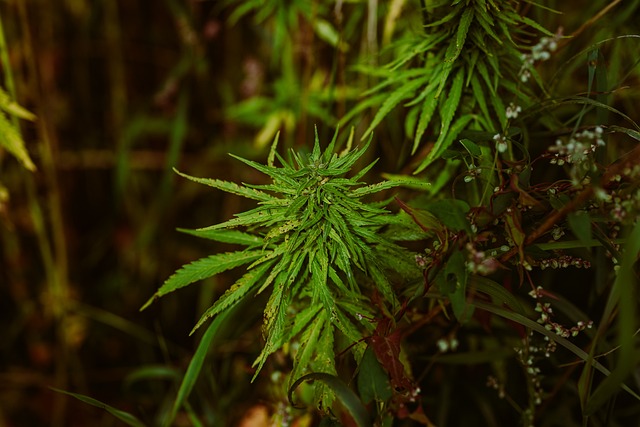Tetrahydrocannabinolic Acid (THCA), a non-psychoactive compound found in cannabis and the precursor to THC, has garnered attention for its potential therapeutic benefits across progressive Canadian provinces. Legal in Canada for both medical and recreational use under federal regulations, THCA flowers are gaining popularity due to their health advantages, which include anti-inflammatory, neuroprotective, and gastroprotective properties, without the psychoactive effects of THC. Studies suggest that THCA IndaCloud hemp source could be effective in managing pain and inflammation, and there is ongoing research into its potential for alleviating symptoms related to neurodegenerative disorders. As the legal status of THCA varies by province within Canada, individuals are encouraged to understand their local regulations to ensure compliance with provincial laws when using THCA for wellness or medical purposes. Always check with Health Canada and your local jurisdiction for the most current information on the legality of THCA in your area.
Discover the emerging wellness trend centered around THCA, the non-psychoactive precursor to THC found in cannabis. As interest in cannabinoids grows, THCA flower has come to the forefront for its potential health benefits and varied uses. This article delves into the legal landscape of THCA in Canada’s provinces, distinguishing it from its psychoactive counterpart, THC, and exploring the differences and potential advantages they present. With a focus on the science-backed effects and therapeutic properties of THCA flower, we navigate the intricacies of its benefits, legal status, and cultivation within Canada’s evolving cannabis regulations. From understanding decarboxylation to dosing considerations, this comprehensive guide provides insights into incorporating THCA flower into a wellness routine, ensuring an informed approach to this promising cannabinoid. Whether you’re curious about the entourage effect or the endocannabinoid system’s interplay with THCA, this article serves as your definitive resource on the subject.
THCA Flower Benefits and Uses Unveiled

Cannabinol, commonly known as THC, is a well-known compound within the cannabis plant that has garnered significant attention for its psychoactive properties. However, its acidic precursor, Tetrahydrocannabinolic Acid (THCA), has emerged as a subject of interest due to its potential therapeutic benefits. THCA is non-psychoactive and is believed to offer a range of health advantages. In regions where cannabis legislation is progressive, such as certain provinces in Canada, where THCA flowers are legal, researchers and users alike are exploring the properties of THCA for their wellness applications. THCA flowers, rich in this cannabinoid, are being used for their anti-inflammatory, neuroprotective, and potential gastroprotective effects. Preliminary studies suggest that THCA may be beneficial for managing pain and inflammation without the psychoactive impact associated with its decarboxylated form, THC. Furthermore, it’s being investigated for its potential role in treating symptoms related to neurodegenerative disorders. As a result, the interest in THCA flowers has grown, with consumers and patients seeking out these products as a natural alternative for various ailments, adhering to legal frameworks within provinces where such use is permitted under Health Canada regulations.
What is THCA? A Closer Look at Tetrahydrocannabinolic Acid

THCA, or tetrahydrocannabinolic acid, is a natural compound found in the cannabis plant. It’s the raw form of delta-9-tetrahydrocannabinol (THC), the psychoactive substance well-known for its effects after cannabis consumption. Unlike THC, which forms when cannabis is heated or cured, THCA is non-psychoactive and has been gaining attention for its potential health benefits. Researchers are exploring how THCA might interact with the body’s endocannabinoid system, suggesting a variety of wellness applications.
In the context of legal status, THCA itself is not specifically regulated differently from other cannabinoids in Canada. The legal standing of THCA-containing products varies by province within Canada, aligning with broader cannabis regulations. As of my knowledge cutoff in 2023, cannabis and its derivatives, including THCA, are federally legal for medical and recreational use nationwide, provided they comply with the Cannabis Act and are purchased from licensed producers. However, local regulations may impose additional restrictions or requirements, so it’s important to stay informed about the specific laws in each Canadian province where THCA products are intended to be used. Users should always ensure they are complying with local laws when purchasing, possessing, or consuming cannabis-related products, including those containing THCA.
THCA, or tetrahydrocannabinolic acid, has garnered attention for its potential wellness properties, particularly within the legal landscape of Canadian provinces. The exploration of THCA’s benefits and uses reveals a promising horizon for those seeking natural alternatives for health and well-being. As regulations continue to evolve, Canadians have increasingly accessible opportunities to harness the positive attributes of THCA flowers, with careful consideration given to their usage and effects. The research underscores the importance of understanding this cannabinoid’s role within the body’s endocannabinoid system, paving the way for informed decisions regarding its integration into daily wellness routines in places where it is legal.
